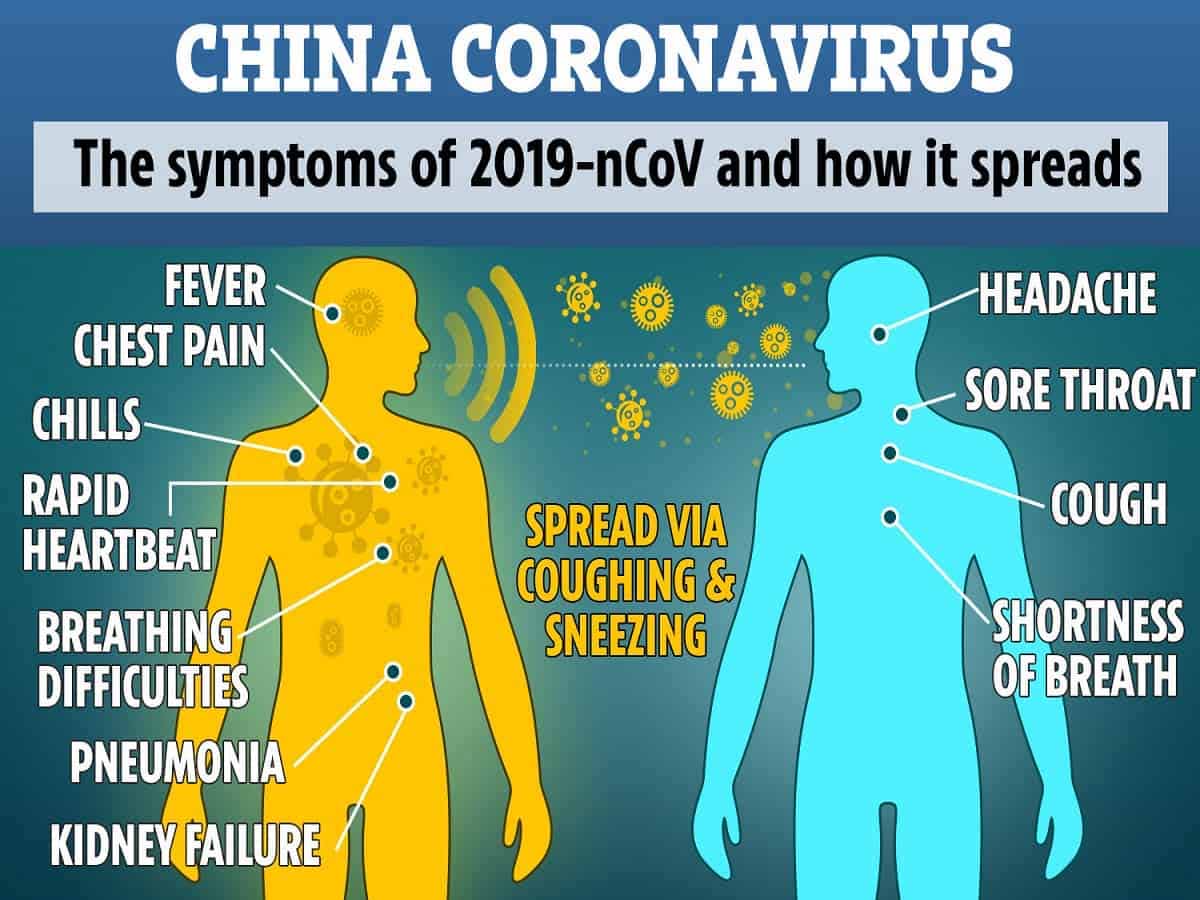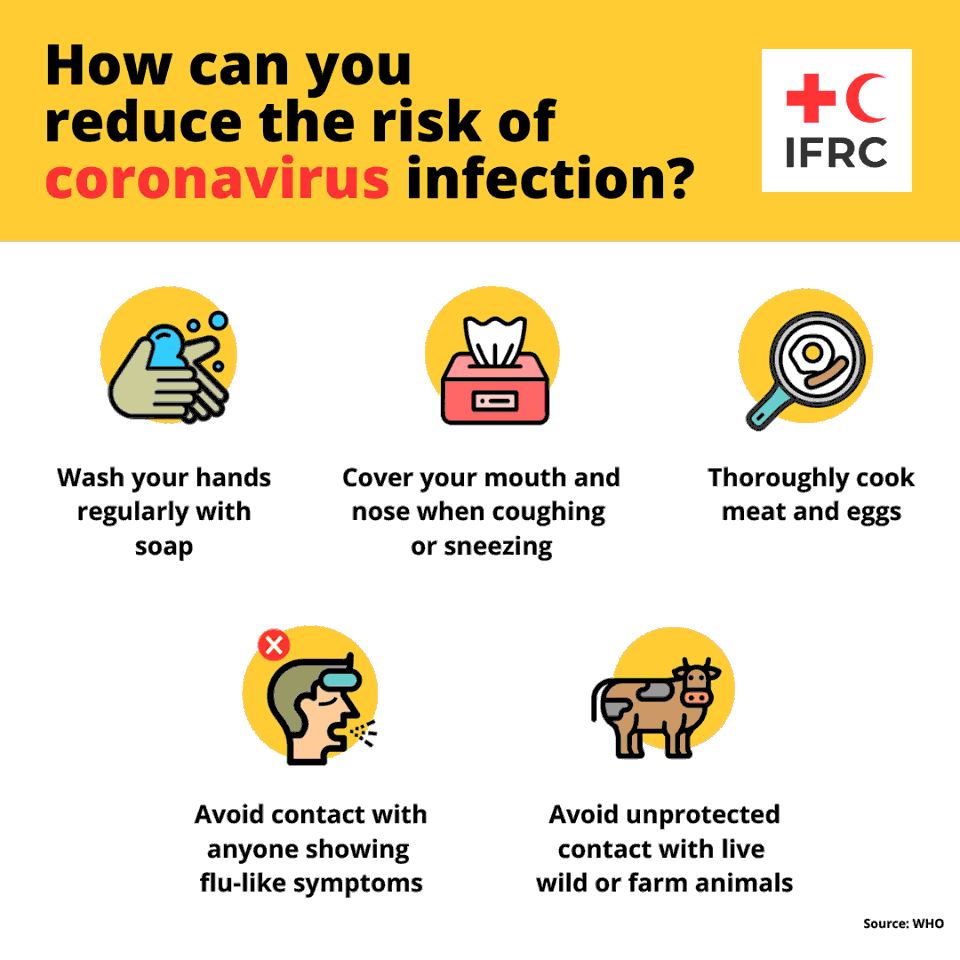
The coronavirus causes disease in mammals and birds. In humans, it causes respiratory diseases that can be fatal. So far no vaccine or drug has been invented against it.
Coronavirus is a type of virus transmitted from seafood to humans. The first person died in China on January 5, 2020, from the transmission of the virus. The virus is now spreading from China to various countries. The virus has also been confirmed by a Nepalese person studying in China who has the infection.
Precautions of Coronavirus Disease:
The following precautions can be taken to prevent the transmission of coronavirus.
- Don't get in touch with a lot of live animals.
- Covering the mouth with a handkerchief or handkerchief when coughing.
- Focusing on personal hygiene.
- Avoid being in direct contact with a person with an illness.
- Use caution in crowdfunding.
- Contact the hospital if you see any symptoms.

In 2002, when the outbreak of a new bacterium erupted, China banned the sale of live or dead animals, including wild animals, to the market. It was estimated at that time that the deadly Severe Acute Respiratory Syndrome (SARS) would spread because of these bacteria. Coronavirus, similar to SARS, has now infected China, and the main origin of the disease is believed to be those organisms.
The ban on the sale of such animals was later lifted, and the animals reappeared in the market. Now another corona bacterium has spread to China, and so far more than 1,700 people have died and more than 65,000 have fallen ill. It looks even more dangerous than SARS.
After all, what is the root source of this bacterium? Still doubtful, but the corona has been pointing its finger at those cluttered wild animals for bacterial sources.
More than 60 million people in more than a dozen Chinese cities are in captivity. That is why there has been a voice calling for a permanent ban on the sale of wildlife. Many people think that trade is thwarted because of the limited wealth of people looking for wildlife in the name of delicious meat.

Robert Webster, an influenza bacteriologist at St. Jude Children's Research Hospital in Memphis, Tennessee, said, "The number of bacteria in the animal is immense, but not all of them are infected. These bacteria can cause harm to humans at any time. '
SARS and the recent spread of Covid-19 are not the first examples of human suffering and disease. In Africa, deadly Ebola is believed to have spread through the hunting and selling of animals by the name of 'Bushmit'. Bird flu probably came from a chicken in the Hong Kong market in 1997. It is believed that the fungus is also transmitted from animals to humans.
Scientists have not been able to pinpoint exactly how the new coronavirus was infected for the first time. Evidence suggests that coronavirus may have originated from the skin. They are believed to have infected other animals and have infected humans in the illegal market of Wuhan, the southeast city of China. The now-closed, Hunan Seafood Wholesale Market (Hunan Seafood Wholesale Market) had advertised the sale of dozens of wildlife meat, including dozens of species of animals, such as giant lizards, goat's babies, and wild dogs. Although these organisms are produced on the farm, they are often classified as wildlife.
Coronavirus infection has been confirmed in 33 sample tests collected from the market, officials said, and 31 of them were found near the wildlife trades center. Comparing it to pets such as long-lived chickens and pigs, experts say there is little information about the bacteria found in wild animals.
His cattle market was similar to that in Asia and elsewhere, where animals are tied or kept in cages. Authorities say it's difficult to distinguish between legally and illegally poached animals. Often they are killed everywhere in the market, selling fresh produce. Experts point out that even the smallest disadvantages of humans can cause problems and infect new bacteria in humans.
'If you look at a living animal, it is completely covered with excreta. Blood is everywhere because of spontaneous bites, "said Peter Daszak, president of EcoHealth Alliance. The organization is working to protect people from new diseases and to protect wildlife.
Daszak said the risk of spreading the disease is natural as people travel around the world in more travel and trade.
Peter Lee, a student of Chinese politics at the University of Houston, said the Chinese are new to wildlife. The economic growth of the country has increased the tendency for people to taste new animals, he said. Chinese social media has now been sharply criticized for its dissatisfaction with a limited number of the rich, which has played a role in the health of the common people and increased its risk.
'This is the second time, the first SARS, this time seen in Wuhan. We don't want that for the third time, 'Lai Jinping from Sichuan said over the phone.
'We hate them,' said Tao Yiwei, a 36-year-old housewife. Emphasizing the need for a permanent ban on the sale of wildlife, not a temporary one.
This month, Chinese President Xi Jinping announced that illegal wildlife trafficking would be 'completely illegal and strictly banned'.
In the eastern province of Anhui, authorities have banned the use of wild badgers and rodents. Six traders have been arrested on charges of involvement in the sale of wildlife at the Tianjin port.
According to Chinese authorities, around 1.5 million markets and online operators across the country have been monitored and investigated after the coronary infection in Huawei. About 3,700 shops have been closed while around 16,000 breeding sites have been cordoned off.
It is unclear how these measures will continue in the coming days. Before the outbreak began, 54 species of cattle were allowed to be sold in China. But there was a problem when there was no reliable law to distinguish between pets or wildlife.


